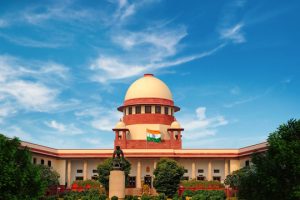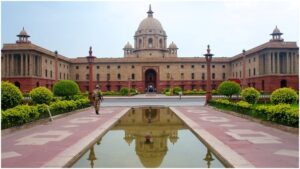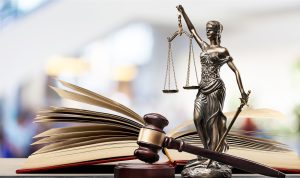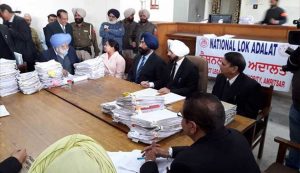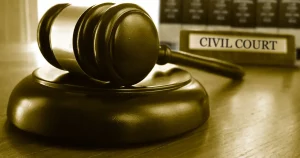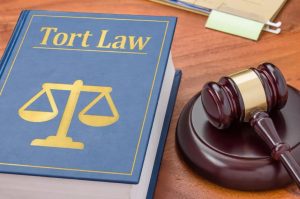The Uttar Pradesh government is working towards empowering & strengthening the groups of women & children that are the pillars of a society.
Read MoreThe Indian Law
The Helpful Side Of Our Legal System
The helpful side of the Indian Law
Articles
The Articles page portrays the latest politico-economic situation in India and the world. The importance of logic not being lost in the din of the ordinary clutter with a host of writers from different walks of life lending their work to you.
Resources
Resources are meant to be shared if we are to make this world a better place. We share with you the works of aspirants who are eager and working hard to be able to give their service to the Indian Constitution.
How to
The law is complex, but it doesn’t mean that the rights and duties of a citizen be wrapped up in jargon and complexities. We offer you a explanation of various procedures so that you are confident when you interact with the law.
Articles
Child Labour in India and Its Constitutional Implications
Child labor refers to the employment of children in work that is harmful to their physical and mental development.
Read MoreComprehensive Analysis Of Judicial System In India
India has an oldest judiciary in the world, no other judicial system has a more ancient and exalted pedigree.
Read MoreRevamping India’s Legal Framework: Unveiling The New Bills Replacing IPC, CRPC And Indian Evidence Act
The legal framework of any nation forms the cornerstone of its judicial system, which ensures the maintenance of order of social values.
Read MoreIndian Constitution
Civil Rights During Election Period In Relation With Freedom Of Speech And Expression
The first principle of a free society is an untrammeled flow of words in an open forum. This article will further elaborate on its importance.
Read MoreConstitutional Position Of The President
The legal powers of the President are thus vast. Yet he is intended to stand in relation to the Union Administration substantially in the same position as does the King under the English Constitution.
Read MoreThe President & His Powers
India is a form of parliamentary government. It is a form of government in which the executive is responsible and answerable to the legislative
Read MoreArticle 22: Protection Against Detention And Arrest
Article 22 is covered in two major parts; protection and rights granted in case of punitive detention and the safeguards against preventive detention.
Read MoreIndian Penal Code
Criminal Law Development In Ancient India
The history of codification of criminal law in India generally begins under the British rule although its roots date back to the Vedic age.
Read MoreCulpable Homicide
The Indian Penal Code has defined culpable homicide under section 299 and termed it as manslaughter, highest form of injury to a human being.
Read MoreOrigins & Forms Of Punishment in Ancient Hindu and Mohammedan Law
Punishments in Hindu and Mohammedan Laws were cruel and ferocious devoid of any compassion. This article discusses forms of punishment and it's origin.
Read MoreCrime: meaning, theories & fundamental elements
This article gives brief information about the meaning, definition and elements of crime taking into consideration theories propounded by various authors.
Read More“The Law is the public conscience”

Cases & Laws
D.S. Nakara & Others v. Union of India
Pensions are paid to the employee for their services with the aim of providing the employee the means to meet the expenses of life.
Read MoreAparna Bhat v. State of M.P., 2021, SCC
This case outlawed arbitrary bail terms, which can negatively affect and further traumatize the victims.
Read MoreIn Re: An Advocate vs Union Of India
The case in question was that of professional misconduct by an advocate who was enrolled in the Supreme Court in January 1961.
Read MoreIn Re- Tulsidas Amanmal Karani vs Durupadi Naraindas Karani
Civil contempt involves the failure of a person to comply with a court order. Civil contempt sanctions make sure that the order is complied.
Read MoreContracts
Contract Of Indemnity
Indemnity is a contractual agreement between two parties where one party agrees to pay for potential losses or damages caused by another party.
Read MoreJurisprudence
Sociological School Of Jurisprudence
The sociological approach to the study of law is the most important characteristic of our age. Jurists belonging to this school of thought are concerned more with the working of law rather than its abstract content.
Read MoreIntroduction to Jurisprudence
The word jurisprudence is derived from the Latin word "Jurisprudentia" which means "knowledge of law. In Latin language 'Jure' or 'Juris' means 'law' and 'prudentia' means 'skills or knowledge'.
Read MoreMuslim Law
Veiled Justice: Exploring Legal Perspectives on Niqab in Contemporary Societies
Muslim women wear a type of face covering called a niqab, which has a history influenced by religious and cultural factors.
Read MoreMarriage And Dissolution Of Marriage Under Muslim Law
In Islam law the relation of marriage between man and women is considered to be a sacred bond. Here, we will discuss its legal aspects.
Read MoreA Temporary Relation: Muta’h Marriage And Its Position In India
Muttah marriage is a type of temporary marriage in Shia Islam that is contracted for a fixed period of time.
Read MoreLegal Principles On Conversion To Islam
Religious conversion is not prohibited in law. Every person has a right to choose and profess any religion of his/her choice.
Read MoreLocal Laws UP
Land Tenure System In Medieval India
The significant contribution in the history of land tenure system in medieval India begins from Rashtrakutas and ends with the Mughal Empire.
Read MoreLand Tenure System In Ancient India
Land tenure system explains the traditional or legal rights individual or groups of individuals have on land.
Read MoreProfessional Ethics
Contempt Of Court
Contempt of Courts Act, defines both civil and criminal contempt. Civil contempt refers to willful disobedience to any judgment of the court.
Read MoreInterpretation of Statutes
Primary Rules Of Interpretation: Literal Rule or Strict Construction
The words of a governing text are of paramount concern, and what they convey, in their context, is what the text means.
Read MoreAids to Interpretation
An Aid, is a device that helps or assists. For the purpose of construction or interpretation, the court has to take recourse to various internal and external aids.
Read MoreInterpretation of Statutes
Interpretation of statute is the process of ascertaining the true meaning of the words used in a statute.
Read MoreCompany Law
Navigating Mergers And Acquisitions in Company Law
A Merger is a combination of two corporations where the acquiring company assumes the assets and liabilities of the merged company.
Read MoreLaw Relating To Promoters Of The Company
Promotion is a term of wide import denoting the preliminary steps taken for the purpose of registration and functioning of the company.
Read MoreDoctrine Of Indoor Management
The doctrine helps protect the rights of external members of the company by entitling them to knowledge about the internal works.
Read MoreArticles Of Association
The articles of association direct rules which govern the conduct of directors, the rights of the shareholders and their relationship.
Read MoreLabor Law
Five Year Plans & Industrial Relations
The planning commission of India laid down eleven successive plans towards the development of industrial sector in India.
Read MoreIndustrial Relations: An Overview
Industrial Relationship is used to denote the collective relationships between management and the worker.
Read MoreLaws Relating To Retrenchment
The term Retrenchment in India means permanent termination of the employment of the employee by his employer.
Read MoreConcept Of Lay Off In Labour Law
The concept of Lay-off in India means temporarily keeping a workman without or away from work due to inefficiencies.
Read MoreAdministrative Law
Detailed Study On The Core Principles Of Natural Justice
Natural justice is a fundamental element of due process and is often a requirement in legal systems around the world.
Read MoreThe Rule of Law: A Foundation of Indian Democracy
Rule of law was not known to ancient and medieval India. The king was the fountain head of justice and the protector of all laws.
Read MoreOmbudsman & Lokayukta In India
The concept of ombudsman originated in 1809 with the official inauguration of the institution of Ombudsman in Sweden.
Read MorePublic Interest Litigation Laws In India
A Public Interest Litigation (PIL) is a petition that can be filed by any member of the public for any matter of public interest, for redress of public wrong or injury.
Read MoreArbitration & Conciliation Laws
Lok Adalat System In India
Lok Adalat promotes the Gandhian principle of peacefulness and is based on transparency, efficiency and a less expensive form of justice.
Read MoreConciliation Meaning and Procedure In India
Conciliation is a process by which discussion between parties is kept going through the participation of a conciliator.
Read MoreIntroduction To Arbitration & Conciliation Act
This is an act to consolidate and amend the law relating to domestic arbitration, international commercial arbitration and enforcement of foreign arbitral awards.
Read MoreLimitation Law
Doctrine Of Laches with Relevant Case Laws
The doctrine of laches is used by the courts to deal with an inordinate delay that is occurring in filing a petition or complaint.
Read MoreCyber Law
Sexual Offenses, Cyberspace And Internet: A Critical Analysis
Cyber Crime against women is basically a new concept in India that has emerged with the increasing use of internet among the population.
Read MoreThe New Frontier: Addressing Legal Issues in Artificial Intelligence
AI denotes the simulation of human cognitive functions by machines, predominantly computer systems.
Read MoreShielding Cyberspace
In the digital era the ever-escalating threat of ransomware looms large, endangering the very fabric of our interconnected world.
Read MoreIntellectual Property Rights
Digital Revolution And Intellectual Property Protection
IPR safeguard creators and inventors exclusive rights to their work, fostering innovation and creativity.
Read MoreComparative Advertisements & Its Legal Framework
Comparative advertisements may not be considered trademark infringement if they do not harm any other brand’s reputation.
Read MoreHow To
How To Obtain A Divorce Decree In India
The divorce procedure in India starts from the filing of the divorce petition and ends with the pronouncement of the final order of the divorce.
Read MoreBachelor/Single Status Certificate
A Bachelor Certificate is the Certificate which proves that a particular person is un- married and single in status.
Read MoreLaw Of Trust & Equity
Extinction Of Trust & Resulting Trust
A trust is revoked when the fulfillment of its purpose becomes impossible to perform, due to destruction of property or otherwise.
Read MoreRights & Liabilities Of Beneficiaries
The beneficiary has the right as well as liability, against the trustee and all persons claiming under him with notice of the trust.
Read MoreMaxims Of Equity
The judicial principles constituting the sources of equitable doctrines are commonly known as "Maxims of Equity".
Read MoreUnderstanding The Law Of Trust and its legal implications
The Indian Trusts Act is one of India's most significant pieces of legislation. It's main goal is to safeguard the interests of its beneficiaries.
Read MoreCivil Procedure Code
Hierarchy Of Civil Courts In India
Understanding the gradation and classification of civil courts is essential when navigating the legal system of India.
Read MoreCivil Suit & Its Various Stages
A civil suit is a legal process which involves various steps to determine the private rights of the parties.
Read MoreThe Evolution Of Civil Laws In India
The evolution of civil laws in India is an ongoing process which reflects the dynamic nature of Indian society.
Read MoreWhat is Civil Law in India
The law of civil procedure in India prescribes the procedure for the enforcement of substantive civil rights.
Read MoreLaw of Torts
Law of Torts in India
Law of torts being a developing law, its frontiers are incapable of being strictly barricaded, however we will expand on it here.
Read More


